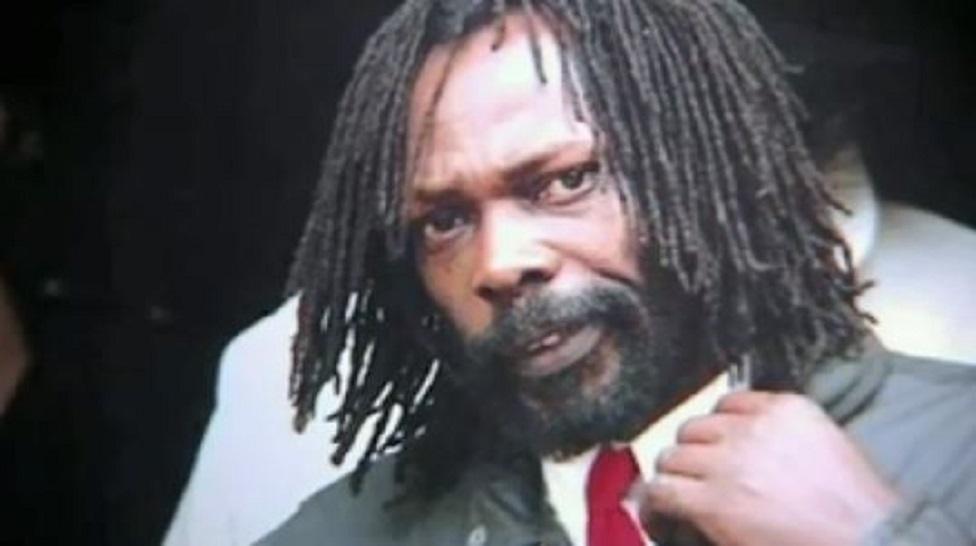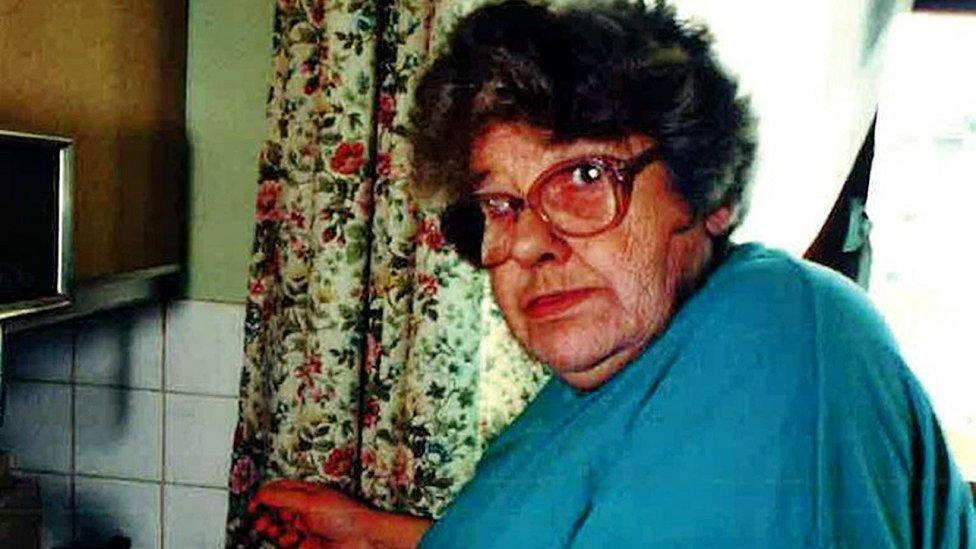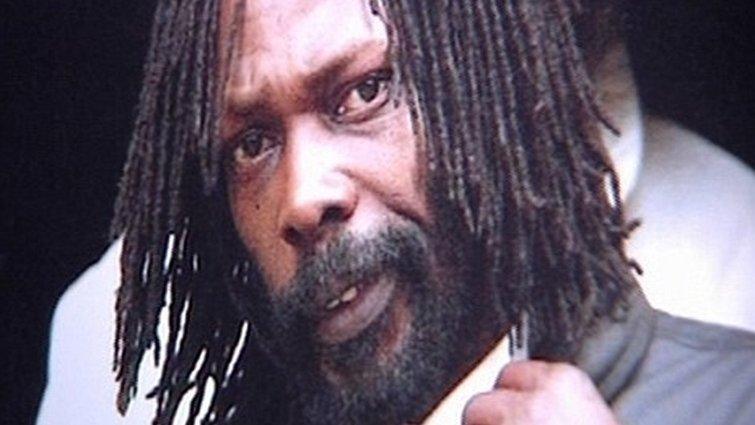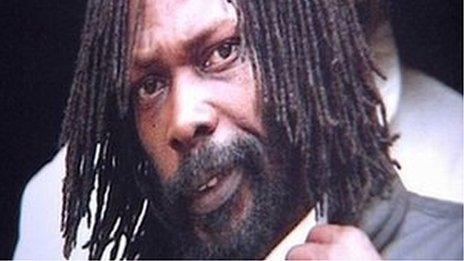Wendell Baker: Family did not know of 'dangerous' rapist release
- Published

Wendell Baker was jailed for life in 2013 after attacking 66-year-old Hazel Backwell and locking her in a cupboard
A "dangerous" rapist was cleared for release from prison without relatives of his late victim being informed, BBC News has learned.
Wendell Baker was given a life sentence in 2013 for attacking 66-year-old Hazel Backwell and locking her in a cupboard.
The Parole Board announced last month Baker was "suitable for release" following a hearing in April.
But, Mrs Backwell's son said he only learned about the outcome from a newspaper reporter.
The Ministry of Justice has apologised to Mr Backwell for failing to contact him and has asked the Parole Board to reconsider the decision to free Baker, claiming it was "irrational" and not in line with the evidence.
He was convicted in 2013 at a second trial, made possible by changes to "double jeopardy" laws, having been acquitted in 1999 when a judge wrongly excluded vital DNA evidence.

Hazel Backwell was left too afraid to live alone, following the attack
Mrs Backwell died in 2002, five years after Baker had broken into the pensioner's east London house where he beat and raped her and locked her in a cupboard.
Sentencing him to life imprisonment, Judge Peter Rook said Baker had carried out a brutal and vicious attack and was a "dangerous man" who would remain so for many years.
But by April, the 63-year-old had served the eight-and-a-half year minimum term of his sentence, including time spent on remand, so a parole panel held a telephone hearing to decide if he could be safely freed.
The panel took evidence from a probation officer, a forensic psychologist and Baker himself, as well as considering information in a dossier about his case.
Wendell Baker was jailed after a judge ruled he should be found not guilty at his first trial, in 1999
Parole Board guidelines have stated the victim of a crime, or relatives if the victim has died, should be entitled to submit a statement for a parole hearing, setting out how their family had been affected.
But Mr Backwell was never contacted - until a journalist rang him after the board had announced its decision that Baker was "suitable" for release.
His wife Margaret said it was a "total mess-up" and said they felt "sick and very, very angry".
"We knew he was going to be released eventually, and were told in 2013 that we would be notified before he was going to be put up for release," she said.
"So to hear he'd already been put up and released was a total and utter shock."
Government sources said in 2013 police had failed to pass on Mr Backwell's contact details to the National Probation Service (NPS), which is responsible for keeping victims updated, and although efforts were made to trace him before the parole hearing they were "not successful".
A Ministry of Justice spokesman said Mrs Backwell's family "should not have found out in this way" and that the Victims' Code, external would be updated.
- Published28 June 2013

- Published19 May 2020
